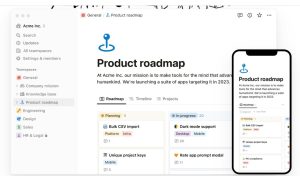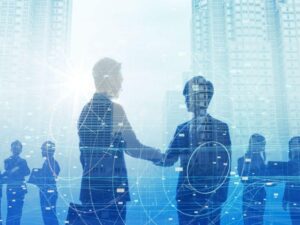Karen Roby speaks with Dataminr’s Jen Jones about the role of artificial intelligence in the coronavirus crisis and why information is key to managing emerging risks.
TechRepublic’s Karen Roby talks with Jen Jones, CMO of Dataminr, a company that uses artificial intelligence (AI) to detect risks, about the role AI is playing in the effort to keep companies informed during the COVID-19 crisis. The following is an edited transcript of the conversation.
Jen Jones: Our platform is an artificial intelligence platform that pulls information from over 10,000 public information sources, things like social media platforms or blogs or even information sensors like what you would get from a ship transponder or a plane transponder. We’re pulling all those publicly available information pieces together and detecting very early indicators of potential risks or threats or events as they’re unfolding in real time across the globe.
And our clients right now span from either corporate enterprises who are using us to gain early information so that they can mitigate risks very quickly and with confidence, depending on their business needs, or public sector agencies who are on the front lines dealing with the current COVID-19 crisis. They’re getting very early alerts from us on breaking news so that they know where to deploy equipment and resources.
SEE: Coronavirus: Critical IT policies and tools every business needs (TechRepublic Premium)
Karen Roby: This is one of those events that affects everyone. It affects every single business. It doesn’t matter your size, who your customer is, we’re all impacted.
Jen Jones: It’s everything from companies or entities that are dealing with it on a firsthand basis to simply deciding when your employees should work from home, when should you close down your offices temporarily. I think eventually we’ll see the reverse of that. When do you bring employees back? When are schools opening? When is it safe to call people back? When should you give them the option versus mandating that they’re back in the office? When do we all start traveling again? It really is impacting absolutely everyone.
Karen Roby: Talk a bit about the tech driving this platform.
Jen Jones: I think it comes down to both the speed at which events are unfolding right now and the global nature of them: Getting information as it’s unfolding really for any emerging risks. But I think the current pandemic is a perfect example of how critical information is. Knowing that you have reliable information, that you’re getting it as fast as possible so that you have more time to make a decision, so that you can act quickly before it’s already impacted your business or your people.
That’s where I think artificial intelligence plays a really unique role, when you talk about public data, the scale is massive. Right? On our platform alone, we’re talking billions and billions of data units processed every single day, from 10,000 plus and growing data sources. That scale is where you really need something like artificial intelligence to help.
Karen Roby: Talk a little bit about how social media is playing a role right now when it comes to the amount of information and the type of information that’s being shared.
Jen Jones: I think social media has a really interesting role to play here. It often gets a bad reputation for propagating misinformation, which can be true. But if you’re able to parse out and boil down what is firsthand information, which is one thing that we’re able to do. By detecting first hand eye-witness accounts of what’s happening and noticing the data patterns in that, separating that out from all of the viral memes and misinformation, for example.
When you’re able to boil the world of social media down to eye-witness accounts of what’s actually happening, you get to this really pure ground truth, which I think can be really powerful, both from the real-time nature of that and also the global perspective. For something like COVID-19, where it’s happening in different languages all across the globe, where official reports can sometimes be slow or unreliable, that ground source of truth is more critical than ever.
SEE: Project Florence: How AI-powered online learning is training nurses to fight COVID-19 (TechRepublic)
Karen Roby: You touched on this a little bit earlier, but expand a little bit on the importance of getting that information. When you talk about a company here, to the different levels and across the levels of a company, how do you keep people best informed?
Jen Jones: I think there’s something there about democratizing information, so more people can have access to information and use it for their own needs. In the case of a corporate client of ours, for example, this kind of information used to be only the domain of the security department. It was very much about risk mitigation and handling threats. But for something like this, we’re seeing HR departments need this information, certainly the executive team, even the board. It’s really about every single person that is in charge of something or someone in a company has some level of risk to mitigate here. Making sure they can get the information that they need to analyze on their own terms with their own perspective in mind, and help make decisions as quickly and accurately as possible, is key.
Karen Roby: As we’re looking ahead to businesses opening back up, getting the right information out there will be more important than ever.
Jen Jones: Yeah, that’s actually sort of where my head’s been at in the last few days. Maybe it’s just trying to look ahead toward what the next normal looks like, but we know we’re going to be in this temporary state for a while. But as every single region hits their apex and for successfully flattening the curve, stays there for a little bit, and then eventually starts to decline, we’re all going to have to make our own decisions both at the government level, at the local level, for each individual company even, and have to decide what makes sense for them, when or with when are they reopening offices that they closed, when are employees traveling again, when are we bringing people back for large-scale sporting events and concerts and conferences.
SEE: Balancing public safety and privacy during COVID-19: The rise of mass surveillance (TechRepublic)
That’s going to really depend on individual risk tolerance levels, what the area’s like. And I think that’s where information is. We sort of come down the other side of the curve. It’s going to be really critical.
Then, of course, keeping an eye on things because I’m sure many of us have all heard about the likelihood of a second wave or another blip of an outbreak. How can you be ready for that and plan for that, learning from what we all learned this first time around and be ready to quickly reenact those policies, hopefully for a shorter time, and more temporarily?
Also see
” data-credit=”Image: Mackenzie Burke” rel=”noopener noreferrer nofollow”>

Karen Roby talks with Jen Jones of Dataminr about how artificial intelligence can help companies plan for the future.
Image: Mackenzie Burke
Source of Article




